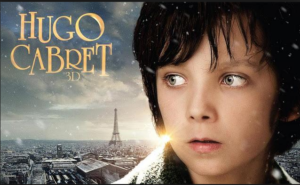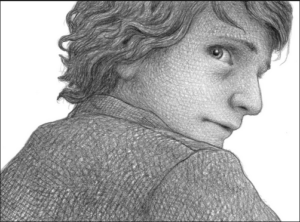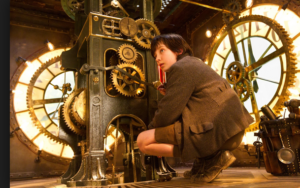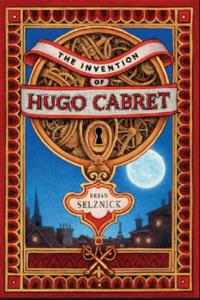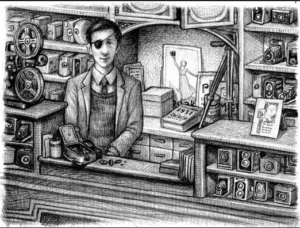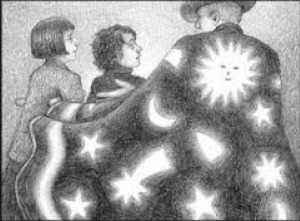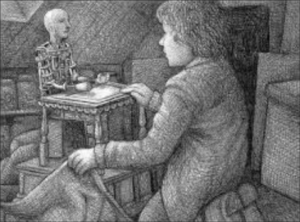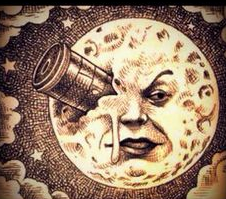Last year we had a project in school where we all read the book «The Invention of Hugo Cabret» together in class. The book is quite different from other books because half of the story is true and half is fiction. We meet Hugo, a young orphan boy who lives in the train station Montparnasse in Paris in the 1930ies. Hugo has lost his parents and is living alone in the station. As he watches life go by from behind the station clocks, he keeps his hopes for the future alive through an automaton his father had left behind. At the same time we get to know and other character, Mr Georges Mellies or Papa Georges as we get to know him. His story is a true story from real life and in an intricate way his real life story and the fictional character Hugo´s lives interferes in a masterly clever way. The book is also visually a masterpiece unlike any books we have seen before. Half of the book is text and rest of the story is told through illustrations. This is a beautiful story about finding a purpose in life, a place where you belong and how secrets might be best not kept hidden away…..
The students read the book and watched the movie before writings a book review.You can read all the reviews below. We hope you enjoy this as much as we did ;=)
Hugo Cabret student nr.11Hugo Cabret student nr.12Hugo Cabret student nr.13
Hugo Cabret student nr.20 Hugo Cabret student nr.22 Hugo Cabret student nr.18 Hugo Cabret student nr.16
Hugo Cabret student nr.1 Hugo Cabret student nr.2 Hugo Cabret student nr.3 Hugo Cabret student nr.4 Hugo Cabret student nr.5 Hugo Cabret student nr.7 Hugo Cabret student nr.8 Hugo Cabret student nr.9 Hugo Cabret student nr.10
